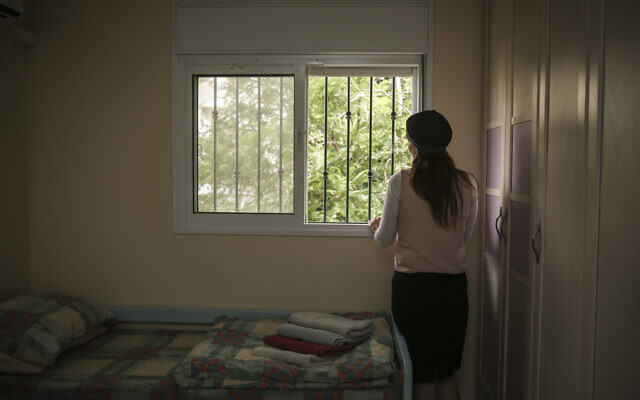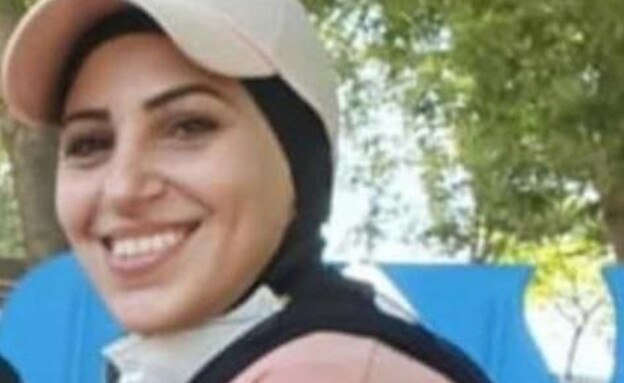Issuing order to Lod mother of four, court notes children also in danger; anti-violence lobby group says women can’t be forced into shelters, detention is for potential attackers

A judge ordered a woman from Lod into a protective shelter on Saturday, against her will, due to threats against her life from her ex-husband.
It came after last week a woman who was known to be under threat from her husband was shot dead in Lod.
However, the court’s move drew criticism from an anti-violence lobby group and a candidate for the leadership of the Meretz party, who said that the ruling went against the woman’s rights.
Gunshots were fired at the woman’s family home on Friday, the Kan public broadcaster reported.
She was then taken to a police station, where she spent the night, after she refused to go to a protective shelter for safety.
Despite pleas from police and a social worker, she refused all other offers for protection.

After deliberation, Judge Menahem Mizrahi of the Rishon Lezion Magistrate’s Court decided on Saturday that the woman would be transferred to a protective shelter against her will due to the threat against her life.
Though recognizing that ordering the woman into the shelter was a blow to her rights, Mizrahi stressed that the people threatening the woman’s life could also harm her four children.
Mizrahi said the ruling was also to protect the woman’s children “whose voices are not heard, and there is a fear that those who endanger her safety may endanger theirs as well.”
“It is not easy for the court to take such a paternalistic judicial move, but the sanctity of life rises above all else,” Mizrahi said.
“In cases like this the court must take responsibility. This is not a legal decision, but a decision that comes from the heart,” he said.
A man suspected of issuing the threats was arrested, interrogated and released to house arrest.
The suspect has set the woman’s car on fire in the past, Kan reported.
The woman was ordered to remain at the shelter for three days, but at the request of her attorney the judge agreed to delay enforcement of the order until Sunday, enabling her to appeal the decision, Haaretz reported.
The woman’s lawyer, Shadi Kabaha, said: “With all the good will of the court and the police to protect the defendant, who is my client, the solution cannot be to trample her legal rights and deny her freedom.”
“It is unacceptable for a person who is a victim to be detained and forced against their will to stay in a shelter, while those who allegedly threatened them are walking around freely,” Kabaha said.
Israel Police said in a statement it “invests a lot of effort, using all the means and tools available to it within the framework of the law, in order to protect human life”
However, former Meretz party leader Zehava Galon, who is making a political comeback with the aim of retaking the leadership of the party, criticized police for the outcome.
“The role of the police is to protect women, not incarcerate them,” Galon said. “It is unacceptable that rather than potential murderers sitting under arrest behind bars, they jail the woman.”
Galon called on Public Security Minister Omer Barlev to personally intervene.

Head of the No2Violence lobby group, Vardit Danziger said in a statement “a shelter is not jail, it is a place of protection and rehabilitation for woman living in violence at home.”
However, she agreed that if a woman refuses to enter a shelter, even when she is aware of the dangers she faces “the move cannot be forced on her, and certainly not by [court] order” and noted that rehabilitation from a violent relationship can only be done if a woman chooses of her own free will to enter a shelter.
“The law enforcement establishment needs to internalize that its duty is punish the attackers, to arrest them for a prolonged period as part of the protection of the victim and not to release them after a few days,” Danziger advised.
Last week Rabab Abu Siyam, also from Lod was shot dead while her 2-year-old daughter was playing on her lap, in an incident of deadly domestic violence.
Abu Siyam had recently been divorced, with those close to her saying that her ex-husband had repeatedly threatened her, forcing her to flee the city.

Activists have long complained that not enough is done to prevent violence against women in Israel, particularly in cases known to the authorities.
According to researchers at the Hebrew University-based Israel Observatory on Femicide, June was the deadliest month this year so far for the murder of women — four deaths within 10 days.
A study by the center examining the first half of 2022 found a 71 percent increase in femicide relative to the same period last year — 12 as compared to seven.
The center said in a January report that there were 16 cases of women murdered in Israel by a relative or a partner throughout 2021, and 21 cases in 2020.
As reported by The Times of Israel
